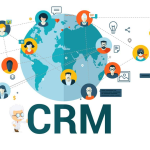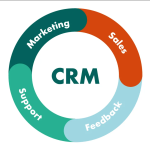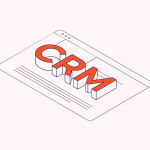Best CRM For Startups Companies – In today’s highly competitive business landscape, building strong relationships with customers is critical to the success of any startup. That’s where Customer Relationship Management (CRM) software comes in. By using a CRM, startups can manage customer data, track interactions, and automate key processes, allowing them to focus on delivering exceptional customer experiences.
However, with so many CRM options available on the market, it can be challenging for startups to choose the best one for their needs. In this blog post, we will explore the top CRM software options for startups, weighing the pros and cons of each to help you make an informed decision.
So, whether you’re a new startup looking to implement a CRM for the first time or looking to switch to a more suitable platform, this post will provide you with the information you need to select the best CRM for your business.
Why do Startups Need A CRM To Succeed?
Successful startups need CRM (Customer Relationship Management) software that can efficiently manage and grow their customer base. Here are the top reasons why a CRM is essential for your startup:
- Optimizing customer data management: CRM software provides a central place to store and manage customer data. This allows startups to easily track customer interactions, preferences, and demographic and behavioral data. By storing all customer information in one place, startups can avoid the confusion associated with managing customer data across multiple channels.
- Improved communication with customers: CRM software gives startups the tools to effectively manage customer communications. Startups can automate recurring communications like email campaigns and personalized follow-up messages to engage with customers and build stronger relationships. It enables startups to effectively communicate with their customers at every stage of their journey.
- Improving sales and marketing performance: CRM software provides data-driven insights into a startup’s sales and marketing performance. Startups can track key metrics like lead conversion rates and customer acquisition costs to identify areas for improvement. By leveraging this data, startups can optimize their sales and marketing strategies, resulting in higher sales and growth.
- Increase efficiency and productivity: CRM software can automate many routine tasks such as data entry and lead qualification, allowing startups to focus their valuable time on high-priority tasks. This increased efficiency allows startups to scale quickly and reach their business goals.
How To Implement A CRM In Your Startup?
Implementing customer relationship management (CRM) software in a startup can be a daunting task, but with the right approach, it can be a smooth and successful process. Here are some steps to follow when implementing CRM in your startup.
- Identify your business needs: Before choosing a CRM, it’s important to determine your business needs and requirements. Consider the size of your business, the number of customers, the types of data you need to store, and the processes you want to automate. This helps him choose a CRM that fits his specific needs.
- Choose the Right CRM: Explore and compare different CRM options and choose the one that best fits your business needs. Consider factors such as cost, scalability, ease of use, and available features.
- Team training: Once you’ve decided on your CRM, it’s important to train your team on how to use it effectively. This allows everyone to use his CRM consistently and efficiently and get the most out of its features.
- Import and clean your data: Before using your new CRM, it’s important to import and clean up your existing customer data. This includes identifying duplicates and discrepancies and consolidating or removing them to create a clean and accurate record.
- Customize your CRM: Tailoring your CRM to your specific business needs can make it more effective and efficient. This includes setting custom fields, automating processes, and creating workflows.
- Integration with other systems: Integrating your CRM with other systems is key to maximizing the benefits of your CRM. B. Email marketing software, e-commerce platforms, or social media accounts. This ensures the consistency of customer data across platforms.
- Monitor and optimize: Monitor CRM usage and performance regularly to identify areas for improvement. Analyze metrics such as lead conversion rate and customer retention rate to optimize and maximize your CRM.
The Benefits Of Using A CRM For Customer Retention In Startups”
Customer retention is a key component of any startup’s success, and CRM (customer relationship management) software can be an essential tool in achieving this goal. The benefits of using CRM for customer engagement for startups are:
- Improved customer data management: A CRM provides a central place to store and manage customer data. It allows startups to track customer interactions, preferences, and demographic and behavioral data. By giving each customer her 360-degree view, start-ups can better understand customer needs and personalize communications and marketing efforts, thus increasing customer satisfaction and loyalty.
- Personalized communication: CRM software enables startups to automate personalized communications with customers at every stage of the customer journey. By sending targeted messages based on customer behavior such as B. Abandoned cart emails or personalized product recommendations, startups can improve customer engagement and retention.
- Improve customer service: CRM software provides startups with the tools to effectively manage customer service requests. Startups can track customer service tickets to respond quickly and make customers feel their opinions are respected. By providing excellent customer service, startups can increase customer satisfaction and loyalty.
- Proactive customer retention: CRM software helps startups identify customer problems and solve them before they become big problems. By tracking customer behavior and engagement, startups can identify when customers are at a distance and proactively reach out to resolve issues and concerns. This helps prevent customer churn and improves customer retention.
- Data-Driven Insights: CRM software provides data-driven insights into a startup’s customer retention efforts. By tracking metrics like customer churn and customer lifetime value, startups can identify areas for improvement and optimize retention strategies. This leads to improved customer retention and increased revenue.
Top CRM For Startups Companies
Here are the top CRM for startup Companies:
1.) Monday
Monday is one of the best CRMs for small businesses that lets you manage all your sales processes in one place. This CRM streamlines the entire sales process with its colorful and visual interface. It’s a versatile CRM platform that allows you to manage projects across your team. Easily see which tasks have been completed, automate workflows, and collaborate on documents.
Features:
- Import all your customer data with just a few clicks.
- Automatically schedule notifications and reminders.
- Monday is lead management software that integrates with other tools to help reduce response times.
- Collaborate with your team using shared workspaces.
- Helps bring teams together anytime, anywhere.
2.) ClickUp
ClickUp is a CRM tool that makes it easy to organize and grow customer relationships by tracking data visualizations in one place. It helps you analyze data to gain customer insights. It helps you easily filter and search for specific tasks. This startup CRM also allows you to assign multiple tasks in one click.
Feature:
- ClickUp allows you to organize your accounts into lists, Kanban boards, or spreadsheets for instant data entry.
- You can assign multiple tasks with one click.
- Schedule and track tasks.
3.) Zendesk
Zendesk is a sales CRM designed to improve the productivity, processes, and pipeline visibility of your sales team. With this tool, you can track every interaction with every customer and turn that data into reports. Make phone calls, send emails, schedule meetings, and more.
Feature:
- Focus your team on the most valuable leads.
- You can use it to run your marketing campaigns.
- Helps in efficient sales management
- Helps you build your apps using the Zendesk Apps framework.
- Dive deeper into your sales data with pre-built dashboards
- It offers sales and marketing tools designed for salespeople. You can make calls, send emails, schedule meetings, view your business history, and more.
4.) ACT! CRM
ACT is an all-in-one CRM for sales and marketing tools that help generate repeat customers. It is one of the best lead management software for small businesses that can perform advanced contact management and email marketing features.
Feature:
- Helps you save all your contact and customer details
- The act offers customizable dashboard integrations with Outlook, Gmail, Zoom, and DocuSign.
- Unleash the full potential of Act! With a custom table! manage in detail
- Streamline how you and your team communicate with prospects and customers
- It helps generate repeat customers and build stronger relationships.
- Supported Platforms: Android and iOS apps
5.) Keep
Keep is an ideal choice for young entrepreneurs who want to spend their time running their business instead of managing customer data in a very comprehensive but very complex CRM system. This allows you to launch email marketing campaigns based on customer behavior. You can also set up any number of marketing campaigns for new and existing customers with customized email marketing messages.
feature:
- Offers an intuitive, easy-to-use marketing and sales automation suite
- Offers a CMS with powerful segmentation, tags, filters, and custom views
- Implement a wide range of lead generation tools, including lead scoring, contact forms, and smart search
- Engagement CRM tool for nurturing leads through the sales funnel with automated drip email functionality
- Customer data management with email integration and customizable notes
Conclusion
choosing the right CRM for a startup can be a challenging task. With so many options available in the market, it is important to consider the specific needs of your business, such as the size of your customer base, the complexity of your sales process, and the features you require to manage customer interactions effectively.
After researching and evaluating various CRM solutions, we have determined that the best CRM for a startup depends on some factors, including cost, scalability, ease of use, customization options, and integrations with other tools.



